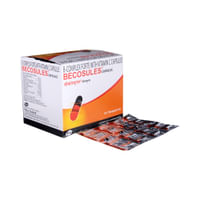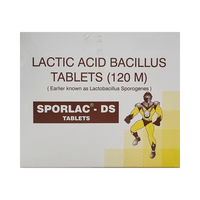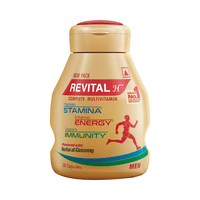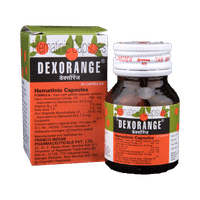Dermavate MF Cream
Rs.36.80for 1 tube(s) (10 gm Cream each)
Composition FOR Dermavate MF
Betamethasone(0.05% w/w),Lactic Acid(3% w/w),Salicylic Acid(3% w/w),Urea(10% w/w)food interaction for Dermavate MF
alcohol interaction for Dermavate MF
pregnancy interaction for Dermavate MF
lactation interaction for Dermavate MF
medicine interaction for Dermavate MF
food
alcohol
pregnancy
lactation
medicine
No interaction found/established
No interaction found/established
Dermavate MF Cream may be unsafe to use during pregnancy. Although there are limited studies in humans, animal studies have shown harmful effects on the developing baby. Your doctor will weigh the benefits and any potential risks before prescribing it to you. Please consult your doctor.
CONSULT YOUR DOCTOR
Dermavate MF Cream is probably safe to use during breastfeeding. Limited human data suggests that the drug does not represent any significant risk to the baby.
SAFE IF PRESCRIBED
No interaction found/established
SALT INFORMATION FOR Dermavate MF
Betamethasone(0.05% w/w)
Uses
Betamethasone is used in the treatment of allergic conditions.
How it works
Betamethasone is a steroid which works by blocking the production of certain chemical messengers in the body that cause inflammation (redness and swelling) and allergies.
Common side effects
Weight gain, Mood changes, Behavioral changes, Skin infection, Hair follicle inflammation, Itching, Burning sensation, Cataract, Increased glucose level in blood, Bruising, Headache, Dizziness, Weakness, Fatigue, Visual disturbance, Nausea, Altered menstrual cycle, Impaired wound healing, Dryness, Stretch marks, Hypertrichosis (excessive hair growth), Skin atrophy, Miliaria (sweat rash), Perioral dermatitis, Allergic contact dermatitis, Hypopigmentation, Local site pain, Angioedema (swelling of deeper layers of skin), Decreased potassium level in blood, Hypersensitivity, Blindness, Pulmonary edema, Rebound effect, Cushing syndrome, Glycosuria, Glaucoma, Slow heart rate, Cardiac arrest, Arrhythmia (irregular heartbeats), Cushingoid syndrome, Perforated peptic ulcer, Pathologic fracture of long bones, Hypothalamic-pituitary-adrenal axis suppression, Charcot-like arthropathy, Steroid myopathy
Lactic Acid(3% w/w)
Uses
Lactic Acid is used in the treatment of keratoses and psoriasis.
How it works
Lactic Acid removes the top layer of the dead skin cells and helps improve skin texture, reduce dark spots, smooth fine lines, and cleanse pores.
Common side effects
Application site tingling, Burning sensation, Erythema (skin redness), Irritation
Salicylic Acid(3% w/w)
Uses
Salicylic Acid is used in the treatment of acne.
How it works
Salicylic Acid is a keratolytic medication. It treats pimples (acne) by penetrating into the skin and killing acne-causing bacteria. It additionally reduces oil production in the skin, replenishes acne-prone skin, and it also keeps your pores open.
Common side effects
Erythema (skin redness), Scaling, Sensitivity, Dryness, Irritation
Urea(10% w/w)
Uses
Urea is used in the treatment of excessive skin dryness.
How it works
Urea, a diamide of carbonic acid, works by dissolving the intercellular matrix (substance found between cells) which results in softening of dry and rough skin.
.Common side effects
Erythema (skin redness), Skin irritation, Burning sensation, Stinging sensation, Itching, Hypersensitivity reaction, Rash, Local swelling
SUBSTITUTES FOR Dermavate MF
No substitutes foundExpert advice FOR Dermavate MF
- Betamethasone can be taken with or without food, but try to have it at same time every day.
- Do not use it more often or for longer than advised by your doctor.
- Betamethasone can make it harder for you to fight off infections. Notify your doctor if you have any signs of infection such as a fever or sore throat.
- Side effects such as mood changes or stomach problems can happen when you start taking Betamethasone. Inform your doctor if this bothers you.
- Do not stop taking Betamethasone suddenly without talking to your doctor first as it may worsen your symptoms.
Frequently asked questions FOR Dermavate MF
Betamethasone
Q. How does Betamethasone work?
Betamethasone works by decreasing the inflammation caused by allergies. It reduces inflammation by blocking the release of certain natural substances that cause allergic symptoms such as swelling, redness, and pain.
Q. Is Betamethasone safe to use?
Betamethasone is safe to use when used in the dose and duration advised by your doctor. You should not take this medicine if you are allergic to Betamethasone or any of the other ingredients of this medicine. Furthermore, you should not take Betamethasone if you have an infection and have not yet started medicine (e.g., antibiotics) to treat it.
Q. Does Betamethasone cause hair loss?
No, Betamethasone is not known to cause hair loss. In fact, it may cause an increase in body hair growth (especially in females) on long-term use. Talk to your doctor if you get excessive hair growth on your body while taking Betamethasone.
Lactic Acid
Q. How to use Lactic Acid?
Before using Lactic Acid, clean and dry the affected area. Gently and thoroughly massage it into the skin. Be careful not to get the medication in your eyes or mouth. If Lactic Acid gets in your eyes accidentally, wash with plenty of water and call your doctor if your eyes are irritated.
Q. What should prompt me to discontinue Lactic Acid?
You should discontinue Lactic Acid and consult your doctor if you experience severe local irritation, which means severe redness, dryness and itching and stinging/burning sensation.
Q. What precautions should be followed while applying Lactic Acid?
Use Lactic Acid only on your skin. Keep it away from areas like your eyes, eyelids, lips, mouth and inside of the nose. If the medicine comes in contact with any of these areas, wash the affected area with water immediately. Avoid using Lactic Acid on scratched or eroded skin and open wounds. Take care when using Lactic Acid on sensitive areas of skin such as your neck. Lactic Acid can make your skin more sensitive to the harmful effects of the sunlight. So, avoid the use of sunbeds/lamps and minimize the time you spend in the sun. You should use sunscreen and wear protective clothing while using Lactic Acid. Avoid contact with hair as Lactic Acid has bleaching properties. It can even bleach dyed or colored fabric, furniture or carpeting.
Salicylic Acid
Q. How should Salicylic Acid be applied?
You should remove all of the make-up. Wash your hands and the affected area and gently dry. Put a thin layer of Salicylic Acid cream on the affected skin, using your fingertips. Apply it to the entire area affected by acne, not just each spot. After applying, wash your hands thoroughly with water.
Q. Should Salicylic Acid be left overnight?
At the beginning of the treatment, Salicylic Acid is usually used once daily in the evening. The area is not washed off after application of Salicylic Acid, so it can be left overnight unless you experience irritation. However, if you experience irritation, consult your doctor.
Q. What should prompt me to discontinue Salicylic Acid?
You should discontinue Salicylic Acid and consult your doctor if you experience severe local irritation, which means severe redness, dryness and itching and stinging/burning sensation.
Urea
Q. Does Urea cause cancer?
No. Urea does not cause cancer.






















